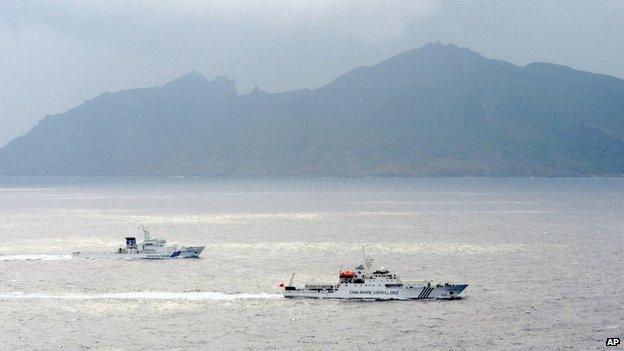China to conduct 'solemn' probe into Japan radar claim
- Published
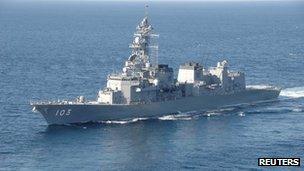
Japan's defence minister said locking onto the ship (above) was "very abnormal"
China's Foreign Ministry has said it is conducting an "earnest, solemn" investigation into Tokyo's claim that a Chinese frigate put a radar lock on a Japanese navy ship last month.
But spokeswoman Hua Chunying also accused Japan of trying to smear China by "stirring up a crisis".
The radar incident happened near a group of islands in the East China Sea which both countries claim.
Japan's Prime Minister Shinzo Abe has said it was a "dangerous act".
On Wednesday, he told parliament the move could have led to an "unpredictable situation" and called for Chinese "self-restraint".
China has not officially commented on the incident until now, and the Defence Ministry has not yet addressed it.
Tensions are high between China and Japan because of the dispute over the islands, which are uninhabited but close to important shipping lanes and may harbour oil deposits.
Japan, which controls them, calls them the Senkaku islands, China calls them the Diaoyu islands and Taiwan, which also claims the island chain, calls them Diaoyutai.
The countries have been disputing the islands' ownership for years, but the row erupted again in September 2012 when the Japanese government purchased three of them from their private Japanese owner.
Since then, Chinese government vessels have been sailing in and out of what Japan says are its territorial waters, prompting warnings from Tokyo and raising concerns over a clash.
'Causing tensions'
On Tuesday, Japanese Defence Minister Itsunori Onodera said a Chinese navy frigate close to the islands had locked its weapon-targeting radar on a Japanese navy ship on 30 January, prompting Tokyo to protest to Beijing.
He said a Japanese military helicopter was also targeted with a similar type of radar by another Chinese frigate on 19 January.
The radar equipment is used to pinpoint the location of a target for missiles. Once the radar is locked on, weapons can be fired immediately.
"Directing such radar is very abnormal. We recognise it would create a very dangerous situation if a single mis-step occurred," he said.
When asked to respond to Mr Onodera's comments at the Foreign Ministry's daily briefing, Ms Hua said: "The relevant Chinese departments are currently conducting an earnest, solemn investigation into these reports to verify them."
She said the problem was not to do with China "showing strength" but Japan "continuously sending its ships and aircraft into the waters and airspace around the Diaoyu Islands to carry out illegal activities, damaging and infringing China's territorial sovereignty".
"Recently Japan has been intentionally stirring up a crisis and causing tensions, blackening China's image," she said. "This is diametrically opposed to efforts to improve relations."
On Thursday, Mr Abe said the incident was "extremely regrettable" but said Japan "will not close the window of dialogue.
"I would like China to return to a more open attitude towards our strategic partnership," he said.
Earlier this week, the US voiced concern over the radar incident, saying it could threaten regional stability.
US State Department spokeswoman Victoria Nuland said such actions "escalate tensions and increase the risk of an incident or a miscalculation, and they could undermine peace, stability and economic growth in this vital region".
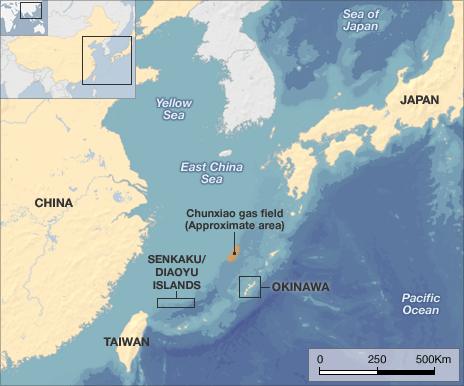
- Published7 February 2013
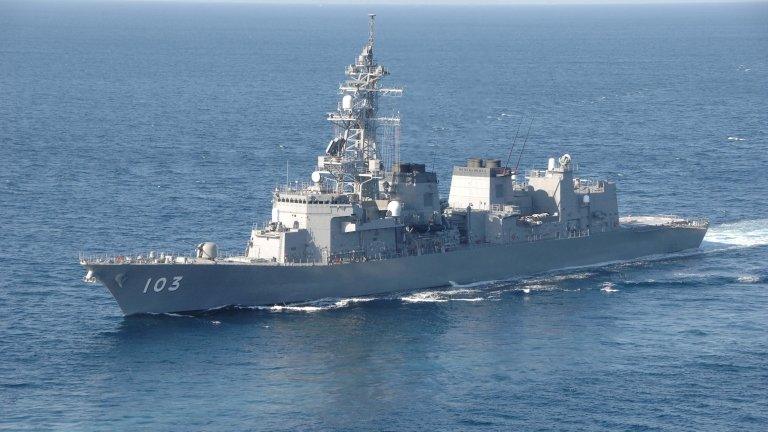
- Published5 February 2013
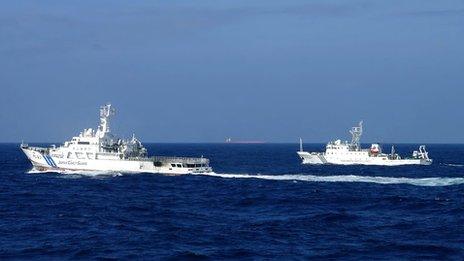
- Published25 January 2013
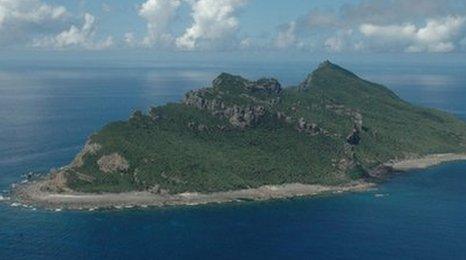
- Published15 January 2013
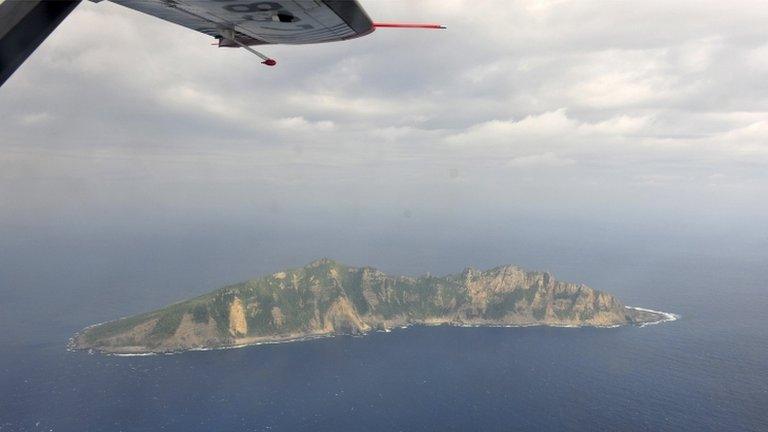
- Published10 November 2014
